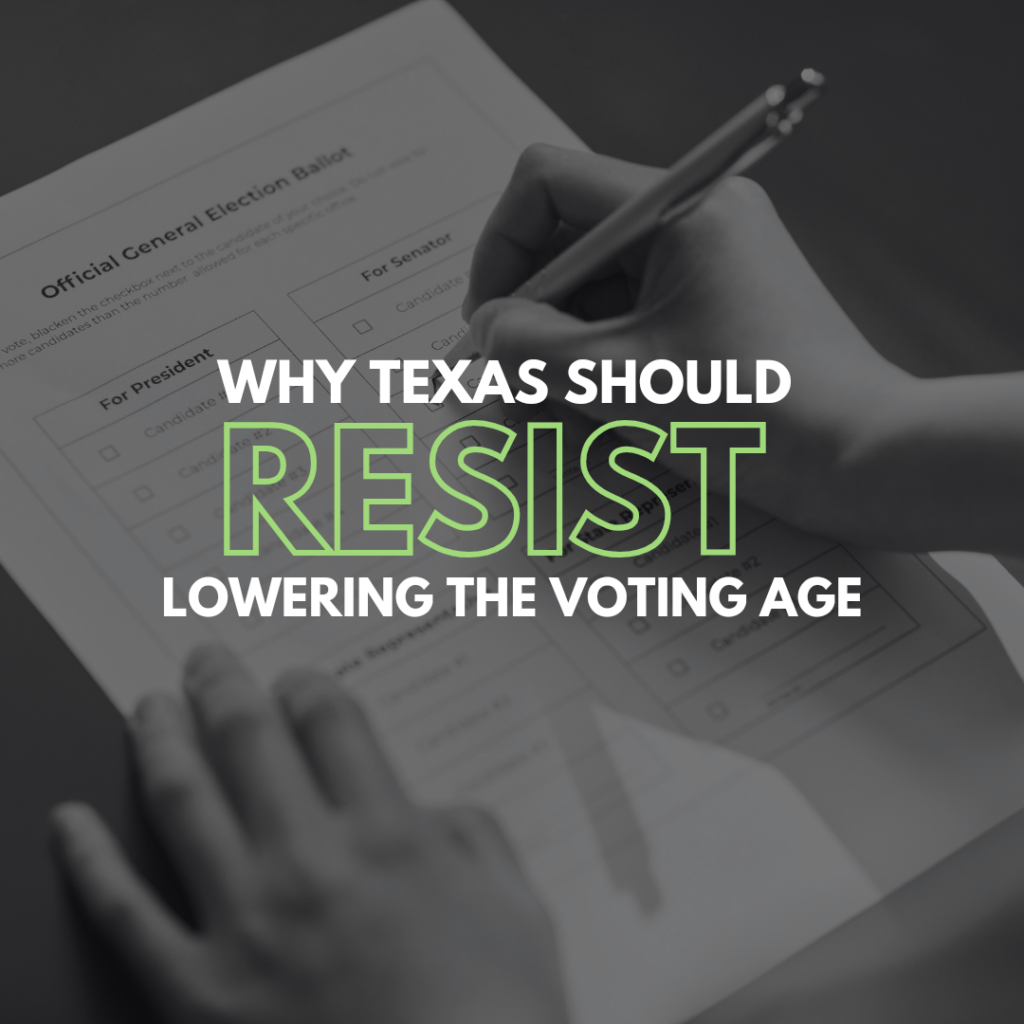Recent developments in other states, such as the decision by Cheverly, a Maryland suburb, to extend voting rights to 16-year-olds for local elections, highlight a growing debate over voting age standards. While proponents argue that such measures empower youth and foster civic engagement, there are valid concerns about the potential impact on electoral integrity.
In Texas, this discussion has become increasingly prominent, which reinforces how crucial it is to resist any proposals to lower the voting age. The decision to maintain the current voting age standards is not merely a matter of administrative policy but a fundamental safeguard of the electoral process.
Lowering the voting age risks diluting the maturity and informed decision-making expected of voters. While 16-year-olds may possess political awareness and engage in civic activities, the responsibility of participating in elections requires a level of life experience and maturity that typically comes with age.
However, if 16-year-olds would like to participate in elections, they can do so by serving as a Student Election Clerk. By providing opportunities for civic participation and education, the state can empower youth to become informed and active citizens without compromising the integrity of the electoral system.
Furthermore, there is a risk that lowering the voting age could be perceived as a partisan tactic aimed at shaping the electorate to favor certain political interests. While some may argue that extending voting rights to younger demographics promotes inclusivity, it is essential to prioritize the integrity of the electoral system over short-term political gains.
The proponents of lowering the voting age tend to be the same people advocating for raising of the age to obtain tobacco products, firearms, and other age-restricted items. One of their principal arguments is that teenagers and young adults under 21 do not have the maturity to fully understand the consequences of their actions. If this is the case, then teenagers under the age of 18 should definitely not be given something as powerful as the ability to vote. There are tremendous, far-reaching consequences that can come from each and every choice made on a ballot.
Texas must uphold its commitment to electoral integrity by maintaining the current voting age standards. By doing so, the state can ensure that elections are conducted in an accurate, transparent, and secure manner.
While the debate over voting age standards continues to evolve, Texas must remain steadfast in its commitment to electoral integrity. By resisting proposals to lower the voting age and prioritizing measures to enhance civic education, the state can ensure that elections are conducted in a manner that reflects the will of the people.

